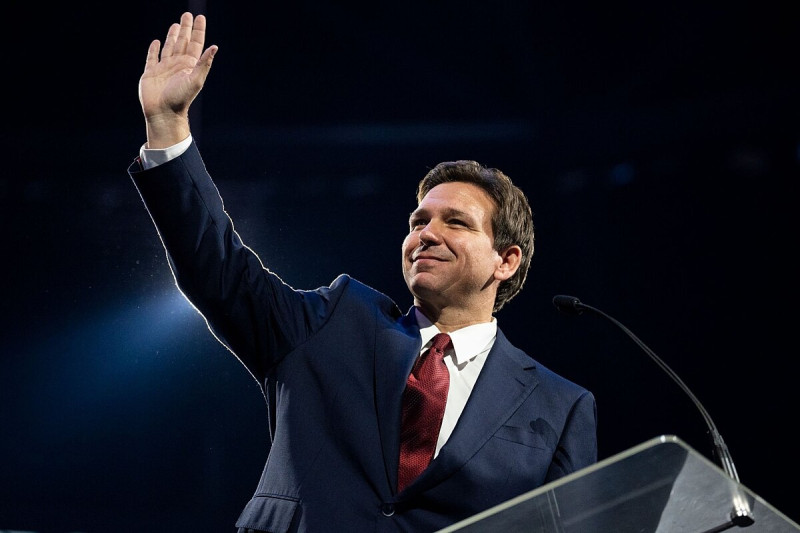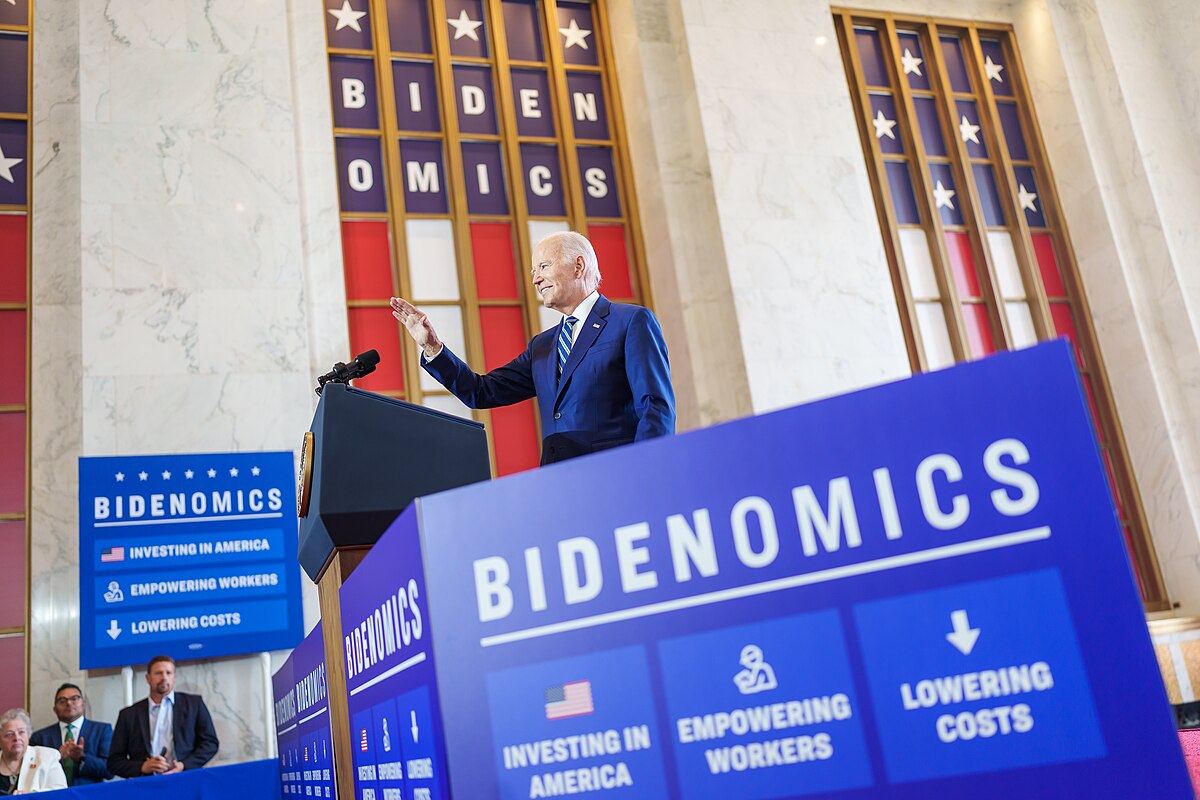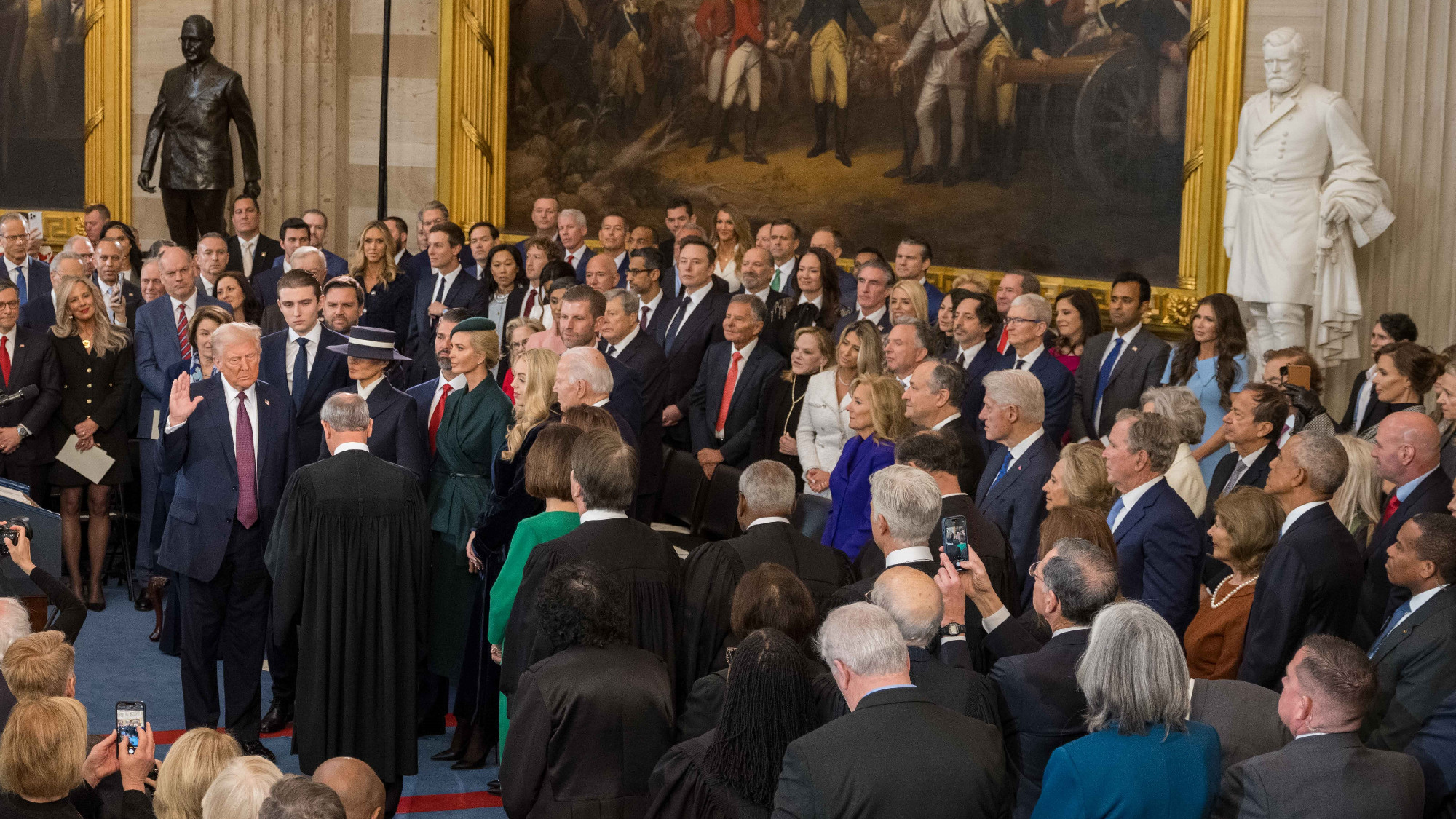In fact, the number of contenders is over a dozen by now. The primaries are all about attrition with most politicians eventually wearing out due to limits in personal stamina or public support. The race only having started, it is too early to predict who would win the presidential tickets in 2024. Still, as Yogi Berra quipped: ,,You can observe a lot by watching.” Indeed, it is useful to look more closely at the key players in the field, their respective political sales pitch and campaign strategy, and especially at how they relate to the tensions of American political life which has become so volatile that it sometimes can be described best in Berra-isms.
,,If the world were perfect, it wouldn’t be”
Theoretically, the Democratic primaries should have very little significance, as Joe Biden indicated multiple times his intention to seek a second term in office, and in the current primary system no incumbent president has ever been defeated by a challenger from the same party. This is confirmed by current polls. According to RealClearPolitics poll averages, Joe Biden is the strongest figure in the Democratic primaries with 64% of voter support. Yet the picture is not all rosy for President Biden. According to FiveThirtyEight, his overall job approval rating is 42,3%, which is lower than most of his predecessors’ at this point in their office, while his disapproval rating is 52,8%, which is higher than most of his predecessors.
In fact, this is probably the reason why Joe Biden is challenged from within his own party. Incumbent presidents in recent decades may have defeated their respective opponents in the primaries but the fact that the latter decided to run was actually an indication of a weakness that could come back and bite the president’s re-election efforts on the general ballot. The main challenger today is Robert F. Kennedy Jr. whose personal background lends him a household name in Democrat circles. President Biden’s other challenger is Marianne Williamson who in some ways is the opposite of both gentlemen, since she has no experience in political office.

Robert F. Kennedy Jr. with President John F. Kennedy in the White House (1961)
Although President Biden did take a lesson from the Trumpian textbook of addressing the issues faced by Joe Sixpack, and has emphasized the efforts to help the middle class, his contenders say that he has failed in this regard. In essence, both argue that the U.S. government has continued to be under the influence of Corporate America under the Biden administration. Kennedy highlights Big Pharma, and the federal government’s lockdown and vaccination policy under the Covid–19 pandemic, although he is also critical of the military-industrial complex, suggesting that the Democratic Party has become a ,,party of war”. Similarly, Williamson claims that the United States entered an ,,era of oligarchy” and calls for an ,,economic bill of rights” which is essentially a list of items demanded by the Bernie Sanders wing of the Democratic Party ranging from universal quality healthcare through cost-free higher education to affordable housing.
Currently, neither Kennedy nor Williamson threatens Biden’s re-nomination.
Still, both contenders have reached double-digit numbers in voter support within the party.
In fact, according to the poll averages of RealClearPolitics, Kennedy still has a 14,4% support among Democrat voters (Williamson has dropped to 5,7%). More importantly, in both cases, the political pitch and the campaign strategy effectively targets a market niche. Kennedy’s views on the pharmaceutical business attract people from the right and simultaneously excludes him from legacy media outlets. He has found home in the world of podcasts, having participated in interviews with Joe Rogan, Jordan Peterson and Bill Maher. Meanwhile, Williamson’s character is related to the idea of having a re-energized and renewed social contract in America which is most popular among young voters whose support was reflected in a surge of views of her TikTok videos shortly after the launch of her campaign.
Good numbers of appearances and followers through online media platforms do not guarantee lasting support for anyone, however, they can make a difference, especially since voter mobilization and information via the Internet has played a key role in recent elections whether we look at Barack Obama’s use of social media to build up support in 2008 or Donald Trump’s use of Twitter to communicate directly to followers in 2016. Joe Biden also embraced the technological advantages of online social media, but his style of campaign and communication have been tuned to legacy media outlets. In fact, the concordance between the Biden White House and mainstream media is so clear that it is a challenge in its own for his political rivals, especially on the Republican side.
,,Always go to other people's funerals. Otherwise, they won't come to yours.”
Unsurprisingly, a year ahead of the presidential elections the political opposition offers a wide array of possible candidates to run for the presidential office. Yet, just like in the case of Democrats, the Republican contenders already have sharply different degrees of voter support, and theoretically, the strongest figure of them all is the former inhabitant of the White House. According to the poll averages of RealClearPolitics, 52,4% of Republicans would vote for Donald J. Trump, followed by Ron DeSantis with 21,5%, Mike Pence with 5,7% and Nikki Haley with 3,6% of voter support within the GOP. In fact, the former president’s lead in the polls is so strong that he alone enjoys more voter support than all the other Republican contenders put together.
The polls also highlight that Trump is still a dominant force in American politics which causes a problem for conservatives. On the one hand, the political right owes a lot to the former New York celebrity for his successful efforts to stressfully address certain issues in public life that used to be taboo (such as media bias, illegal immigration, or imbalances in foreign trade). Trump’s endurance in talking about these topics (whether correctly or falsely) has earned him an adamant political base which is most visible in high turnouts at MAGA rallies. On the other hand, as the 2018 and 2022 midterms and the 2020 presidential elections have proved,
the Trumpian style is a double-edged sword in politics. In other words, Donald J. Trump is the most popular figure in the primaries but not necessarily the most electable in the general elections.
This is a Catch-22 for conservatives who either support Trump and end up losing with him again, or abandon Trump for someone else in the face of a GOP majority.
Meanwhile, the Trumpian political pitch and campaign strategy is also on a forced orbit. The former president faces multiple legal challenges, chief among which is the federal indictment for his mishandling of classified documents. Team Trump is likely to opt for the political arguments during the defense (both in court and on the campaign), emphasizing the political bias and interplay of government agencies and the media which resonates well among many voters (not just in the Trump camp).
Most Republican contenders agree with this assessment of the situation, ending up strangely wanting to see Donald J. Trump politically dead but do not wanting to play any part in his demise out of fear that his supporters will avenge this betrayal. This is a hard balance act, since Trump does not return the favor, and occasionally lashes out at his in-door competitors just as harshly as he does at Democrat politicians. What’s more, appeasing the former president is not viable either because the Trumpian road would cost votes among moderates and independents, and besides, nobody can out-Trump Trump.
Accordingly, the best formula that Republican contenders can try is to defend some of the Trumpian policies while being as unique as possible. Not everyone has been successful at this. For example, New Jersey Governor Chris Christie has been all across the Trumpian spectrum since 2016, starting as a competitor during the primaries, then turning into an ally during the Trump presidency, and eventually becoming a harsh critic after the 2021 assault on Capitol Hill. Nikki Haley has a more consistent take on relations with his former boss: her profile is about defending policies that worked for Republicans, correcting policies that were mishandled (such as the budget deficit) and doing all this independently of Trump. Her most famous line and memoir book title With all due respect refers to her standing up against the Trump White House when she was Ambassador to the UN. Nevertheless, neither’s profile stands out enough: currently, Christie has 2,4% support, while Haley has 3,6% support among Republicans.

Ron DeSantis on the 14th of April 2023
That being said, the best example for the aforementioned formula is Ron DeSantis. On the one hand, his political pitch focuses on issues like illegal immigration, energy security, and school choice, all of which are approached from an ideological perspective, challenging progressive or woke ideas. On the other hand, the DeSantis model is about effectiveness and efficiency, as the Governor of Florida can claim that he can actually sell and realize such conservative policy turns, as proven by his gubernatorial track record and the 2022 midterms when he ended up being one of the very few Republicans who managed to achieve the so-called ,,red wave”. In other words,
DeSantis attempts to exchange the ,,Trump vs. X” debate to a ,,substance over style” decision-point.
Interestingly, in terms of communication platforms, the competition among Republicans seem to mirror the developments on the side of Democrats. Specifically, while Trump has embraced online social media since 2016 (and well before that), his main line of communication remains the legacy media, as the latter is obsessed with him and his scandals. In contrast, DeSantis deliberately launched his official campaign on Twitter and tries to limit his appearances in mainstream media in order to avoid handing the narrative over to the latter. Yet the Republican contender’s efforts to find the best channels bear even more significance because all of this happens in parallel to the re-arrangement of right-wing media in America. In light of the financial issues faced by Fox and Newsmax, or the online repositioning of hosts like Steven Crowder and Tucker Carlson, the 2024 Republican primaries are likely to redraw the frontlines within the GOP as well.
The author is a fellow at the Institute for American Studies at the University of Public Service, Budapest
Opening picture: President Joe Biden announcing unexpectedly good economic results in Chicago on 28 July




